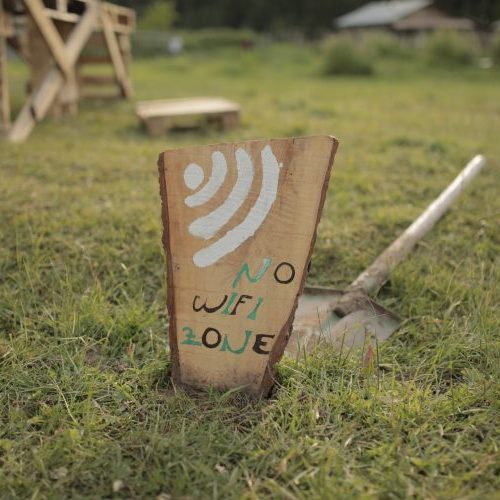When it comes to network connections, there are two primary options: wired and wireless. Both have their advantages and disadvantages, and the choice between the two depends on various factors. In this article, we'll explore the pros and cons of using a wired vs. wireless connection and help you decide which one is best for you.
Wired Connection
Definition
A wired connection is a network connection that uses physical cables to transmit data. This can include Ethernet cables, coaxial cables, or even fiber optic cables.
Advantages
1. ReliabilityThe primary advantage of a wired connection is its reliability. Since the connection is physical, there is less chance of interference or signal loss. This makes it an ideal choice for mission-critical applications that require a stable connection.
2. SecurityA wired connection is also more secure than a wireless connection. Since the connection is physical, it's much harder for someone to intercept the data being transmitted. This makes it an ideal choice for businesses that handle sensitive information.
3. SpeedLastly, a wired connection is generally faster than a wireless connection. This is because the physical cables used in a wired connection can transmit data at higher speeds than wireless signals.
Disadvantages
1. Installation and MaintenanceOne of the main disadvantages of a wired connection is the installation and maintenance required. Running physical cables throughout a building can be time-consuming and expensive, especially in older buildings where the infrastructure is not designed for network connections.
2. Restricted MobilityAnother downside of a wired connection is the restricted mobility. Since the connection is physical, devices need to be connected directly to the network via cables. This can be limiting and inconvenient for mobile devices like laptops and smartphones.
3. CostLastly, a wired connection can be costly. The installation and maintenance of physical cables can add up quickly, especially if you need to run cables throughout an entire building.
Wireless Connection
Definition
A wireless connection is a network connection that uses radio waves to transmit data between devices. This can include Wi-Fi connections or cellular data connections.
Advantages
1. MobilityThe primary advantage of a wireless connection is its mobility. Devices can connect to the network without the need for physical cables, making it an ideal choice for mobile devices like laptops and smartphones.
2. Easy InstallationA wireless connection is also easy to install. All you need is a wireless router and devices that support Wi-Fi connections, and you're ready to go. This makes it an ideal choice for home networks or small businesses.
3. Cost-EffectiveLastly, a wireless connection can be cost-effective. There are no physical cables to install, which can save you money on installation and maintenance costs.
Disadvantages
1. Interference and Signal StrengthOne of the main disadvantages of a wireless connection is interference and signal strength. Wireless signals can be affected by interference from other devices or physical objects, which can degrade the signal strength and affect the quality of the connection.
2. Security RisksA wireless connection is also less secure than a wired connection. Wireless signals can be intercepted more easily, making it easier for someone to access your network and steal your data.
3. Speed LimitationsLastly, a wireless connection can be slower than a wired connection. Wireless signals are generally slower than physical cables, which can affect the speed of data transmission.
Comparison between Wired and Wireless Connections
1. Speed
In terms of speed, a wired connection is generally faster than a wireless connection. Physical cables can transmit data at higher speeds than wireless signals.
2. Reliability
A wired connection is more reliable than a wireless connection. Since the connection is physical, there is less chance of interference or signal loss.
3. Security
A wired connection is more secure than a wireless connection. Physical cables are harder to intercept than wireless signals, making it more difficult for someone to access your network.
4. Mobility
A wireless connection is more mobile than a wired connection. Devices can connect to the network without the need for physical cables, making it more convenient for mobile devices.
5. Installation and Maintenance
A wireless connection is easier to install than a wired connection. All you need is a wireless router and devices that support Wi-Fi connections. However, a wired connection is more reliable and may be necessary for certain applications.
6. Cost
A wireless connection is generally more cost-effective than a wired connection. There are no physical cables to install, which can save you money on installation and maintenance costs.
Factors to Consider When Choosing Between Wired and Wireless Connections
1. Purpose and Usage
The purpose and usage of your network will determine whether a wired or wireless connection is best for you. If you need a stable and reliable connection for mission-critical applications, a wired connection may be necessary. However, if you need mobile connectivity, a wireless connection may be more appropriate.
2. Budget
Your budget will also play a role in your decision. A wired connection can be more expensive due to the installation and maintenance costs, while a wireless connection may be more cost-effective.
3. Network Size
The size of your network will also play a role in your decision. A wired connection may be necessary for larger networks with more devices, while a wireless connection may be more appropriate for smaller networks.
4. Existing Infrastructure
Finally, consider your existing infrastructure. If you already have physical cables installed throughout your building, a wired connection may be the best option. However, if you have a newer building with wireless infrastructure, a wireless connection may be more appropriate.
Conclusion
In conclusion, both wired and wireless connections have their advantages and disadvantages. The choice between the two depends on various factors, including the purpose and usage of your network, your budget, the size of your network, and your existing infrastructure. Consider all of these factors carefully before making your decision.
